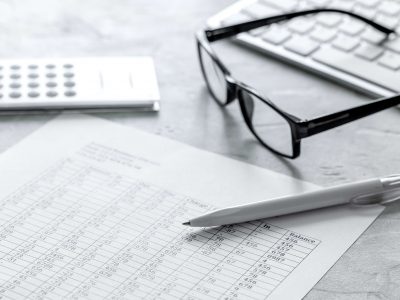
Also, outstanding checks may prove a hassle for an otherwise careful consumer. Keeping track of multiple uncashed checks over a long period of time makes it easier to accidentally spend the money that was set aside for a check and incur overdraft fees. An outstanding check is any check written on a bank account that hasn’t yet been cashed or deposited and cleared. Explore effective strategies for handling outstanding checks to ensure accurate financial reporting and maintain fiscal responsibility.
What is a Bank Reconciliation?
- Remember, the goal is to have a clear understanding of your actual available balance to make informed financial decisions.
- Managing outstanding checks can often feel like navigating a complex labyrinth, where each turn presents new challenges and potential pitfalls.
- Furthermore, checks that are never cashed may constitute “unclaimed property” that is turned over to the state.
- Financial institutions use Eisen’s escheatment, disbursement, and outreach tools to streamline account offboarding while automating manual work and reducing risk of non-compliance.
- After almost a decade of experience in public accounting, he created MyAccountingCourse.com to help people learn accounting & finance, pass the CPA exam, and start their career.
- By maintaining an organized and up-to-date check register, companies can easily identify outstanding checks and reconcile them with the bank statement.
A new check would have to be written or another method of payment could be used. Outstanding checks are not merely a clerical concern; they hold implications for cash flow management and can reflect on a company’s fiscal responsibility. As such, their proper handling is essential in presenting an accurate picture of a company’s financial health. Businesses must track outstanding items to avoid breaking unclaimed property laws. If payments to employees or vendors remain uncashed, they eventually must turn over those assets to the state. This typically occurs after a few years, but timetables vary from state to state.
A Check Issued to Me Is Outstanding: Now What?
- This process is part of the accounting cycle, allowing the company to accurately report cash, a current asset, on its balance sheet.
- When you write a check, you authorize your bank to transfer funds from your account to another party’s account upon presentation of the check by that party to their bank.
- Maintain a Balanced CheckbookEnsure you maintain a balanced checkbook, keeping track of all checks written and deposits made.
- Remember, a check is just a promissory note until it’s cashed, so if your follow-up game is weak, consider it a donation to the bank’s bottom line.
- After consulting with their accountant, EduCo decided to write off the check.
- When Sarah receives her bank statement, it shows a balance of $5,000, but her accounting records indicate a balance of $4,200, taking into account the outstanding rent check.
Accountants must regularly compare the check register against the bank statement to spot discrepancies. This practice, known as bank reconciliation, is typically performed at the end of each accounting period. Reconciling outstanding checks is a critical outstanding checks part of ensuring accurate financial records and tracking cash flow effectively.
Technological Tools to Simplify Outstanding Check Tracking

This automation aids in reducing human error and ensures a more efficient reconciliation process. Additionally, these tools can generate reports that provide insights into the age and volume of outstanding checks, which can be indicative of broader financial management issues. From the perspective of an accountant, one of the primary hurdles is the timing discrepancy between when a check is issued and when it is cleared.
3.1.2 Classification of outstanding checks
These standards could impact the way a payee reports an outstanding check on their financial statements until it has been deposited and cleared. Regularly reconcile your checking account against your records and identify any discrepancies related to outstanding checks.2. Set up automatic reminders or alerts for outstanding checks older than 30 days.3.

Outstanding Checks
An outstanding check refers to a check that has not yet been deposited or cashed by the recipient. Financial institutions also face liabilities related to outstanding checks. Banks may inadvertently honor stale-dated or voided checks, violating policies Catch Up Bookkeeping or exposing themselves to disputes.

Reasons Why Checks Aren’t Cashed
- A well-managed bank account is a stepping stone toward a secure financial future.
- In a bank reconciliation the outstanding checks are a deduction from the bank balance (or balance per the bank statement).
- This discrepancy can lead to significant differences between the cash balance on the company’s books and the actual cash balance in its bank account.
- In the past few decades, several institutions have adopted electronic payments into their operations.
Before diving in any further, if this is your first time visiting GlobalBanks, don’t forget to download your FREE US Banking Starter Guide. It’s designed to help non-residents with opening bank accounts at top financial institutions in the US. Instead, electronic cash payment methods, such as Zelle®, take the money out of your account faster. By not trusting the payee to take action, you remove the possibility that they will forget or put off cashing or depositing the check. If you wrote a check Certified Public Accountant and it is still outstanding, you should consider contacting the recipient to confirm they received it.

Account
To address the issue of outstanding checks, companies must first establish a protocol for follow-up. This involves reaching out to payees who have not cashed their checks within a reasonable timeframe. Communication is often the key to uncovering the reason behind the delay. Perhaps the check was lost, or the payee may have encountered an issue that prevented them from depositing the check promptly.
Leave a Reply